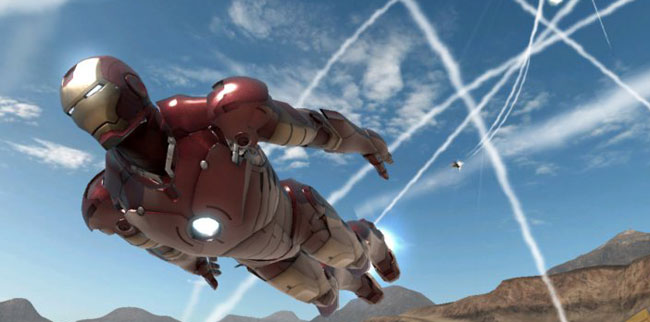We’ve all seen sequels. We all know the pitfalls that they can come up against. Especially when the sequel is in the superhero genre, where the scrutiny is far more intense. And more so still when the original was well-received by critics and fans alike. Yes, we’ve all seen them. Except Jon Favreau. At least, that’s what we’re left to assume. Otherwise, it’s as though he had a checklist of ‘sequel dont’s’ and systematically went about checking them off.
2008’s Iron Man was an unmitigated success. The character is one of Marvel’s most prized possessions and a fanboy-favourite, so the expectations were high. Favreau managed to meet these and surpass them, helped by his inspired casting of the resurgent Robert Downey Jr., who in the film was a one-man charisma army. The final scenes of Iron Man in which he, as Iron Man’s alter-ego Tony Stark, confirmed to the world’s media that he was indeed Ol’ Shellhead had sufficiently whet the appetite for a blazing sequel or even franchise.
The action this time takes place six months after the end of the first film. Tony Stark is under pressure from the US government and rival industrialist Justin Hammer (Sam Rockwell) to hand over the technology for his suit whilst dealing with the realisation that the same technology is slowly killing him. In Russia, Ivan Vanko (Mickey Rourke) is after Stark’s blood after his physicist father was shunned by Howard Stark, forcing him to live in squalor.
Admittedly, sequels are tricky things. How do you improve on the original without repeating it? If you’re Michael Bay, the answer is to throw double the budget at it, repeat it and make it worse. Thankfully, Favreau (and screenwriter Justin Theroux) hasn’t tried to repeat the formula exactly, but unfortunately he hasn’t improved on it either.
Of all the traps Iron Man 2 could fall into, making the lead superhero a sideshow in their own film is the most obvious and the worst. It nearly killed the Batman franchise and has potentially done the same to Spider-Man. Yet that’s exactly what has happened. Stark/Iron Man is generally whipped off to keep himself busy while we get on with watching what’s happening without him. It is such a monumental error that you nearly slap your forehead in despair. The scant scenes where we are with the hero are either muddled or downright boring. You get the feeling that Downey Jr. was allowed to improvise a little too much and has ended up undecided as whether to play Stark aloof, as in the first, or stick to the script at least a bit, with it’s over-in-a-flash daddy issues and deus-ex-machina resolutions. In the end it’s somewhere in the middle and it has neither the charm of the first, or suitable drama to believe in. Even the interplay between Stark and Pepper Potts (Gwyneth Paltrow), a string in the original’s bow, has moved from feisty fun to nagging akin to a married couple. And not in a way that’s either cute or funny.
Normally when a hero is brushed aside, it’s to parade an endless stream of new villains and/or sidekicks. There can be small positives in this if the villains are particularly colourful. What we have here are bland villains and blander sidekicks. Vanko/Whiplash is supposed to be the chief antagonist yet, despite having an early toe-to-toe with Stark in the film’s standout scene during an F1 race in Monaco, also spends most of his time in the wings while we bounce from character to subplot. When he does come to life in the final act, it is such a disappointment that it’s hard to see what the point was. Justin Hammer encompasses the problems within the film. Is he evil? Is he misguided? Is he a genius, or is he an idiot? These aren’t questions arising from a potentially-interesting ambiguity, they’re from a poorly written character.
On the sidekick front, Don Cheadle takes over the mantle from Terence Howard to play Col. James “Rhodey” Rhodes, and while he does an OK job, the chemistry between him and Downey Jr. is half that of his predecessor. When, and it’s not a spoiler to say, Rhodes becomes ‘War Machine’, you can’t help but think you would have cared more if it had been Howard in the role. It would appear Scarlett Johansson’s character, Natalia Romanova/Black Widow, was included purely to provide a spin-off franchise, rather than to enhance the plot.
What is most irritating about Iron Man 2, without going into the condescending ‘we’d-better-explain-all-this-complicated-technology-stuff’ ethos present throughout, is that somehow in the last five minutes everyone involved suddenly manages to find that verve, that charm, of the original. The reaction you are then left with, rather than a shrug of the shoulders, is sheer frustration that the rest of it couldn’t be more like those five minutes. The post-credits sequence adds to the frustration by revealing absolutely nothing we didn’t already know. At least there was a modicum of surprise at the emergence of Nick Fury after the credits had rolled on the first.
A lazy, disjointed and predictable affair which disappoints so much as to be painful.
3 out of 10
What did you think of Iron Man 2?


